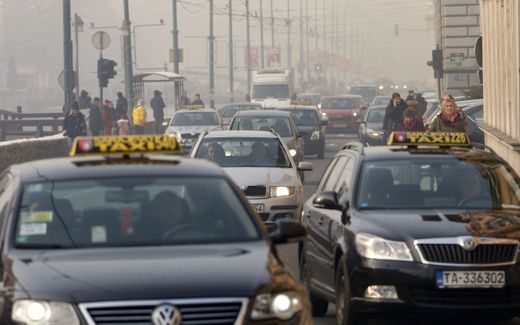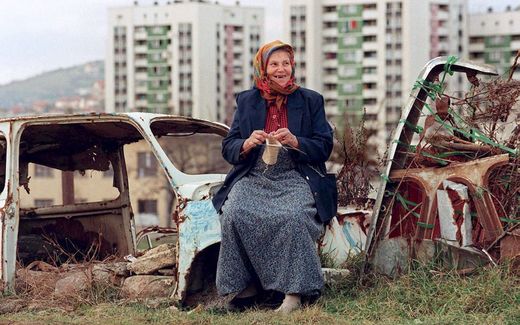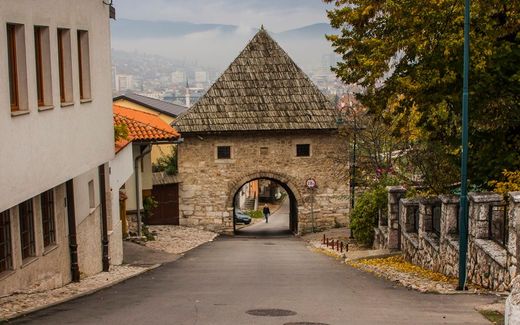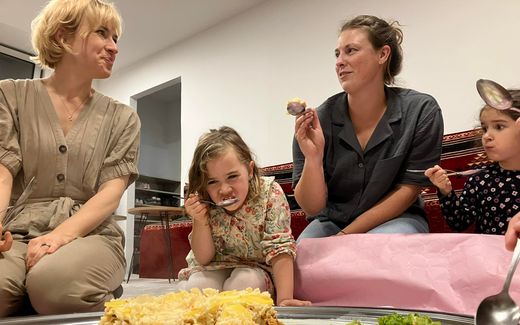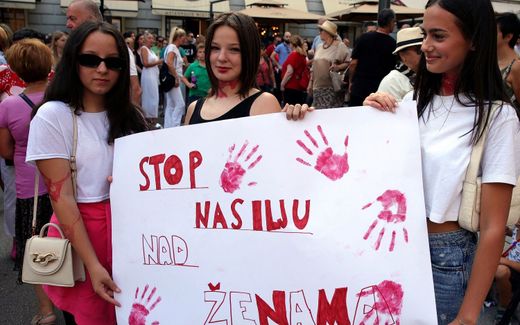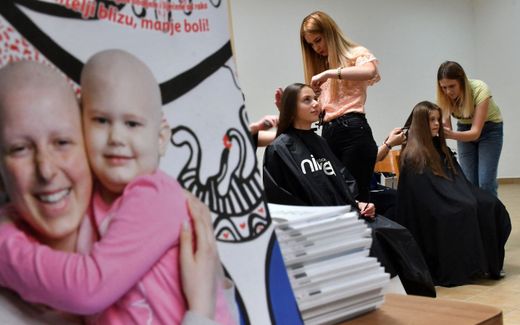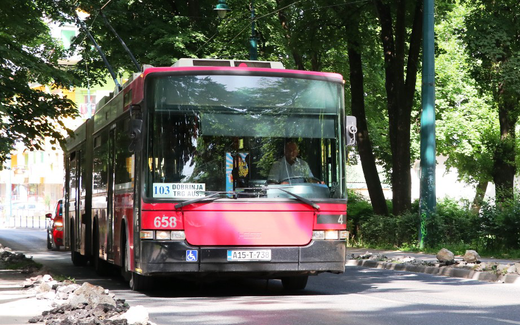How I processed my war trauma at my daughter's school
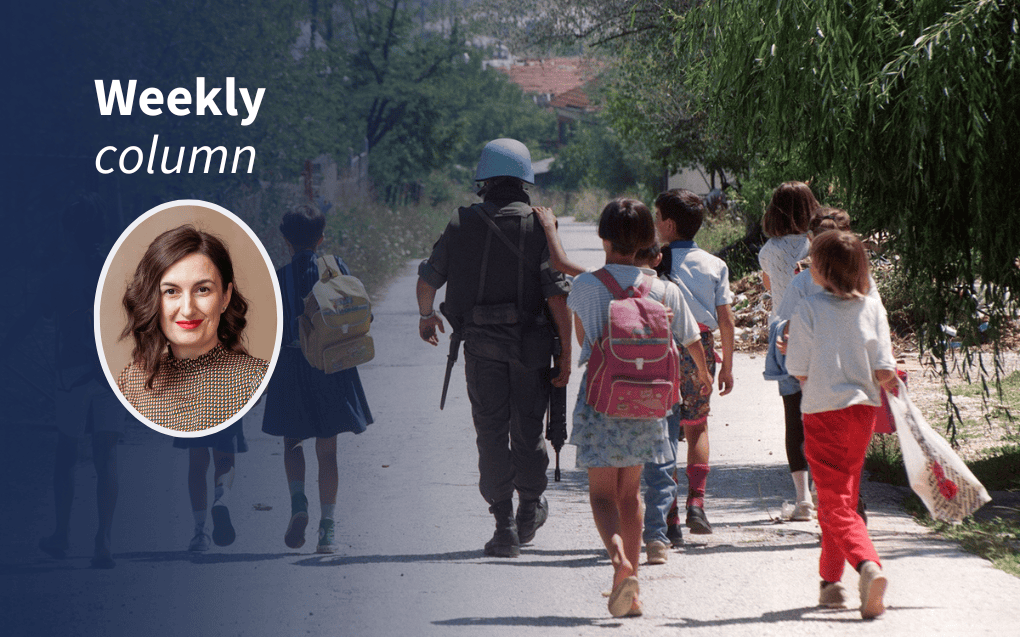
A United Nations Protection Force (UNPROFOR) French soldier escorts on August 14, 1993 a group of children after they left their Kobilja Gava school in Sarajevo. During the conflict in Sarajevo, going to school was a precarious activity. Photo Canva.com, AFP, Gabriel Bouys
Christian Life
War made Mirela's first school day impossible. Now, her daughter has started her first grade. "Healing doesn't always happen in the places we expect."
Stay up to date with Christian news in Europe? Sign up for CNE's newsletter.
My 6-year-old daughter, Eva, started her first grade this September. It was a moment of joy and excitement for our family. We made sure the summer before her school debut would be one she'd remember.
We travelled, played, and created memories —one of the highlights being our trip to the Netherlands. There, we visited a dinosaur park and experienced the whimsical charm of the Hans & Grietje Pannenkoekenhuis (a pancake restaurant in a fairytale theme, ed.). It was the kind of magic that fills the world of a 6-year-old with wonder.

As summer faded, we rearranged Eva's room to reflect the new chapter she was about to begin. A "big kid" desk and chair now replaced her toys, creating a space for homework and creativity. We chose her first-day outfit with such care — a matching heart-patterned shirt, skirt, and elegant black ballerina flats. She looked like a dream, a picture of innocence and excitement, eager to step into her new adventure. It was a day I knew she would always remember.
Shattered
But this day held significance for me, too, far deeper than the joy of watching my little girl grow. As I helped Eva prepare, I was transported back to a time when I should have been preparing for my own first day of school. But that day never came. In the spring of that year, war broke out in Yugoslavia, and with it, the normal rhythms of childhood were shattered.
My mother, like so many other hopeful parents, had prepared an outfit for me, much like the one I chose for Eva—simple yet sweet, a little French-inspired ensemble with a beret to top it off. I was supposed to look like a child ready to step into the world, bright and hopeful.
But the outfit stayed in the closet, untouched, as my family fled our home. We were Muslim Bosniaks, and our town had been overtaken by Orthodox Serb forces. My father, warned by Serb friends, made the difficult decision to leave before the army arrived. We thought it would be a matter of days before we would return.
We didn't. We returned years later.
Target
That school year passed me by, and instead, I started school the following year in another part of town, dressed in clothes that were simply good enough — ordinary but clean. My mother had somehow scraped together a notebook, a pencil, and an eraser. That was all I had. No backpack, just a plastic bag to hold these fragile beginnings.
The school building had been a bombing target, so it was too dangerous to gather there. Instead, an empty house was transformed into a makeshift classroom. Eighty children from different grades were crammed together in one room with one single teacher to guide them. The school day was brief, as everyone feared the gathering itself might become a target.
That experience shaped me in ways I could never fully express. It left a trauma I carry with me to this day — a sorrow for the innocence stolen by war, for the childhood I never fully had.
And so, when Eva's first day of school arrived, I was determined that hers would be everything mine wasn't. I wanted her to feel the joy and excitement that had been denied to me.
Happiness
The excitement I felt wasn't just for her—it was also for the chance to find healing in her happiness. I see now that this is the burden of a war survivor, of a mother who has lived through trauma: the fierce, overwhelming need to protect your child from the same pain, the same losses that scarred you.
But I am learning to let go of that need, to accept that I cannot shield her from life itself. What I can do is give her moments of joy, create experiences that affirm her right to happiness, and allow her to live unburdened by my past.
For this one day, though, I went all out. I bought us matching shoes—Eva's and mine—because I wanted to share this moment of healing. It with herring wasn't just her first day of school — it felt like mine too, a chance to rewrite a story that had once been marked by sadness.
Pencils
That morning, she proudly wore her outfit and carried a new purple-and-pink backpack, a gift from the school, filled with colourful pencils, markers, and notebooks — so much more than I could have imagined at her age. I watched as the older students performed to welcome the new class.
There was laughter and smiles, a celebration of childhood. And I stood there, overwhelmed. Not with sadness, but with gratitude. Gratitude that life had given me this chance to heal, not through therapy or reflection, but through my daughter. In her smile, in her carefree joy, I found the redemption I didn't know I was searching for.
Healing doesn't always happen in the places we expect. Sometimes, it comes in the small, everyday moments we share with the ones we love. In the laughter of children. In matching ballerina shoes.
At that moment, as I looked down at my feet, I knew I had found mine.
Related Articles


